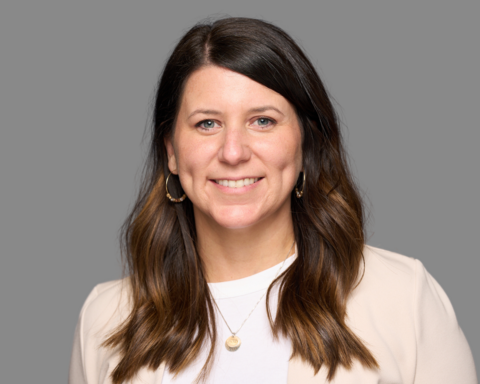
Three years ago, I made the decision to return to school to achieve my terminal degree. As I explored different opportunities, I kept coming back to the importance of obtaining a degree that would allow me to apply my experience, knowledge, and new learning to solve real-world problems. I chose to pursue a Doctorate of Nursing Practice degree in Health Systems and Leadership from the University of Iowa College of Nursing. I must say, I have learned a great deal through this program, taking classes on topics like Innovation, Healthy Work Environments, and various aspects of Leadership, among many other valuable subjects.
Sometimes, when you're deep in schoolwork, completing assignments, and working towards the finish line, you don't always take adequate time to reflect on and discuss how these topics apply to your current work environment. That's why I thought it would be insightful to sit down with none other than Dr. Lindell Joseph, the Director of the Health Systems and Leadership program, to reflect on and discuss the intersection of these important topics with professional identity in nursing and how we can better support our nursing workforce.
Dr. Joseph shared valuable insights on how society shapes professional identity in nursing (PIN), the work environment's impact, and the crucial role of nursing leaders. She emphasized that nurse leaders serve as role models for PIN and that their relationships with each team member matter. The way nurses speak about the profession and the organizational structures in place that position nurses to be engaged in decision-making influences the brand image of nursing, reinforcing or hindering the perception that all nurses are leaders. Dr. Joseph also advocates for using the PIN domains as a framework for coaching and mentoring nurses to foster the growth of their professional identity. These are just a few highlights from this month's podcast episode—we also dive into lifelong learning and the intersection of PIN and innovation in healthcare. Be sure to tune in for an in-depth discussion on all of this and so much more.
Reflecting on my journey through the DNP program, I realize how much my understanding of these topics has evolved. The insights from Dr. Joseph and Dr. Godfrey have reinforced the importance of nurturing a professional identity at every stage of a nurse's career. I have seen firsthand how a strong professional identity can empower nurses to take on leadership roles, advocate for their patients, and drive positive changes in healthcare. The work done by this group gives us language to talk about something many nurses have known intuitively for a long time, but only recently have the language to describe an often missing component to reimagining nursing in the future. With this new language, we can now have meaningful conversations about the topic and begin taking tangible steps to further professional identity formation for generations to come. My DNP journey has also reinforced my thoughts around the critical role of ongoing professional development in sustaining a dynamic and competent nursing workforce. As I continue to grow in my career, I am committed to using my influence as a nurse leader to foster work environments that support professional identity formation and reinforce the idea that nurses are leaders.
Nicole Weathers, MSN, RN, NPD-BC
Iowa Online Nurse Residency Program Director
nicole-weathers@uiowa.edu
Wanting a Program Overview? Need to schedule a meeting? Book time with Nicole
Get all the latest IONRP news. Join our mailing list! Subscribe